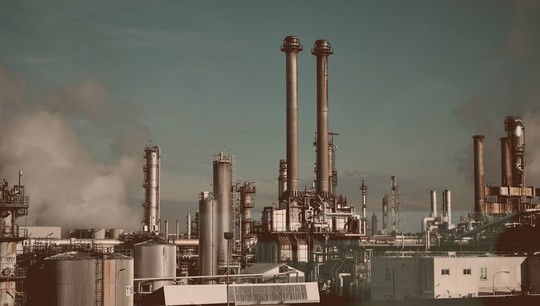Study Shows Lessening Economic Inequality Will Exacerbate Environmental Problems
The reduction of economic inequality in the world may aggravate environmental problems and accelerate the processes of global climate change, believe the UrFU economists with colleagues from other universities. Scientists assure that the growth of the population’s wealth will increase consumption. This will lead, among other things, to an increased demand for energy resources and an increased carbon footprint. An article describing the study has been published in the journal Gondwana Research. The study was undertaken with the financial support of the Priority 2030 program.
“The situation in which increasing prosperity is accompanied by environmental problems is called the equity-pollution dilemma. The problem is that most of the world’s population still uses fossil fuels. The increase in prosperity of citizens will lead not only to an increase in consumption, but also to an increase in greenhouse gases and other air pollutants,” explains Abbas Shujaat, co-author of the study, Associate Professor of the Department of Economics at the Graduate School of Economics and Management of the Ural Federal University.
According to the Emissions Database for Global Atmospheric Research, China, the United States, the European Union, and India are the largest contributors to environmental pollution. At the same time, developed countries are developing green energy and implementing strict environmental regulations, which generally reduces their contribution to greenhouse gas emissions and negative environmental impacts.
“Higher-income countries tend to have clear environmental standards. In addition, the use of alternative energy sources is widespread in these countries. Their populations are more likely to adopt environmentally friendly lifestyles, such as sorting garbage for recycling. This helps spur economic development while reducing pollution. Countries with low per capita income tend to lack environmental regulations, leading to unsustainable use of resources for economic gain,” says Abbas Shujaat.
Legislative measures and financial instruments, such as the introduction of tax incentives for companies producing renewable energy infrastructure, will help to remedy the situation. In addition, it is necessary to raise awareness of environmental problems and environmental protection among residents, the researchers believe.
Scientists analyzed data from 61 countries for 2005-2019 using the Generalized Method of Moments. Countries were divided into groups based on the World Bank’s per capita income classification: low, below average, above average, high. Environmental pressure was measured using greenhouse gas emissions data collected by the Yale Center for Environmental Law and Policy. Inequality data are from the Global Cleantech Innovation Programme. Information on resource rents comes from the World Development Indicators, and information on technological innovation comes from the World Intellectual Property Organization.
The next step is to examine the role of renewable energy in addressing the equity-pollution dilemma.

